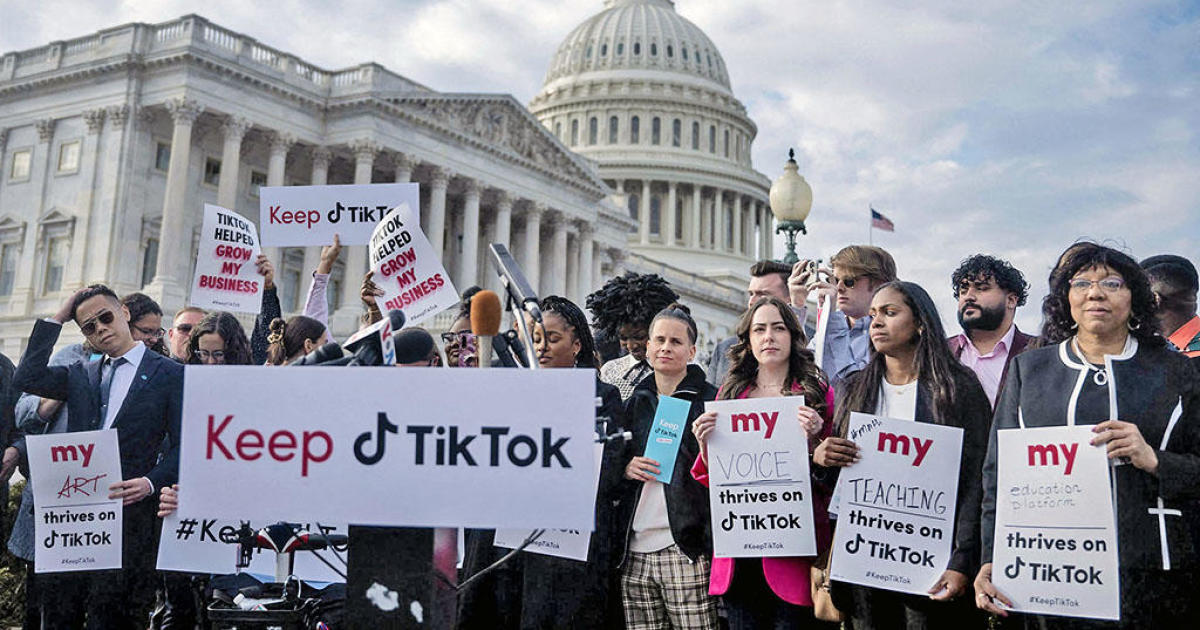Washington — A group of prominent TikTok users sued the federal government on Tuesday over a new law that would force the sale of the widely popular video-sharing app or lead to its ban in the United States.
The eight users, who together have millions of followers on TikTok, argued that the law signed by President Biden last month violates their First Amendment rights by threatening to shut down a communication medium that has become a prevalent part of American life. They also claimed that the law keeps them from creating and sharing expressive material through their chosen publisher, as well as viewing content from other users.
Among the users involved in the court fight are Chloe Joy Sexton of Memphis, Tennessee, who has 2.2 million followers on TikTok; Christopher Townsend of Philadelphia, Mississippi, who has amassed 2.5 million followers; and Steven King of Buckeye, Arizona, who has 6.8 million followers.
The law, they said, “undermines the nation’s founding principles and free marketplace of ideas. The First Amendment to our Constitution precludes Congress from censoring speech because of its content, viewpoints, editorial practices, or identity of speakers or publishers.”
The suit is the second filed in federal court that challenges the law, called the Protecting Americans from the Adversary Controlled Applications Act, and seeks to block the Biden administration from enforcing it. TikTok and its parent company ByteDance filed their own petition in federal court in Washington last week that claims the law is outside the bounds of the First Amendment.
Both petitions were filed in the U.S. Court of Appeals for the District of Columbia Circuit, which the law specifies has exclusive jurisdiction over challenges to it.
The law targeting TikTok was included in a foreign aid package passed by Congress last month and signed by Mr. Biden shortly after. The legislation requires ByteDance, headquartered in Beijing, to sell its stake in TikTok within 270 days, though the president could extend that deadline by 90 days. If ByteDance fails to divest from the platform within that time frame, TikTok would lose access to mobile app store services and web-hosting providers, effectively cutting it off from the estimated 170 million U.S. users.
The measure stemmed from concerns raised by lawmakers and U.S. national security officials about TikTok and warnings that the Chinese government could use the app to spy on Americans or weaponize content to influence public opinion.
TikTok’s powerful recommendation algorithm has been a driver of the app’s popularity, and the platform said in court filings that the Chinese government opposes a divestment of the technology. Attempts to cut TikTok’s operations from ByteDance would leave the platform “without access to the recommendation engine that has created a unique style and community that cannot be replicated on any other platform,” the companies said in their separate legal challenge.
The Trump administration attempted to ban the app in 2020, but TikTok and users who challenged former President Donald Trump’s executive order targeting the platform prevailed in federal courts. A judge blocked a Montana law last year that prohibits the app in part on First Amendment grounds. More than 30 states and the federal government ban the app on state-issued devices.
Scott MacFarlane contributed to this report
